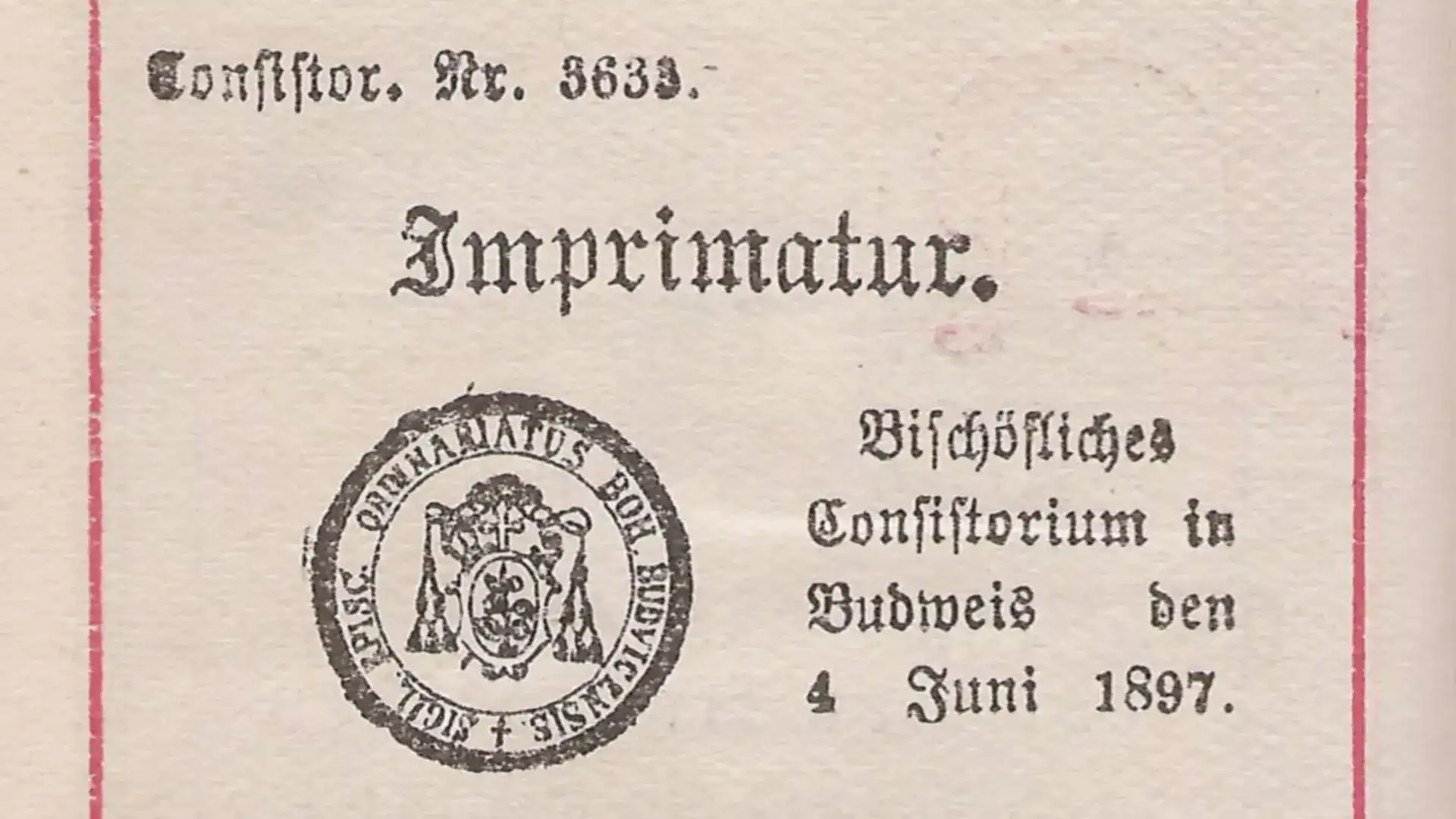Imprimatur
Nihil obstat quominus imprimatur.
Nothing prevents it from being printed, it is the ancient Latin brocardo with which the Holy Mother Church authorized the disclosure of copies of books and private revelations.
This page describes the origin of imprimatur. Visions and locutions are often mentioned in the Bible, they are the work of the Holy Spirit, as we read in Peter’s speech at Pentecost, in which he quotes the prophet Joel (Ac. 2:17). In the context of mystical visions and phrases they are not directly part of the supernatural organism of Christian life, which instead is formed by sanctifying grace, but by virtues infused by the charismatic gifts of the Holy Spirit.
They are an important fact in the evangelizing action of the Church. Peter has visions that guide him to open the Gospel to the pagans (Ac. 10:3) and so too Paul has visions that direct him in evangelization (Ac. 16:9).
The definition “private revelation” characterizes visions and phrases aimed at arousing greater adherence to public and definitive revelation, but also at validating a greater sense of belonging to the Church. Holiness, even the highest, can occur even if the subject has never had extraordinary gifts, being that “… the bond of perfection is charity” (Col. 3:14).
CCC n° 67 asserts:
“Over the centuries there have been private revelations, some of which have been recognized by the Church. The characteristic with which they are considered is not that of completing the definitive revelation of Christ, through the Holy Scriptures, but of living it as a compendium for a specific historical epoch … Guided by the Magisterium of the Church, the sense of the faithful knows how to discern and accept what in these revelations constitutes an authentic appeal of Christ or his saints to the Church”.
These extraordinary gifts must be welcomed with gratitude and consolation, they must be welcomed in love for God and for our brothers and sisters. It must always be clear that the Spirit distributes his gifts (Cor. 12:11) “as he wills, when he wills and to whom he wills”.
Effects in the absence of the Nulla osta.
With reference to private revelations, the Second Vatican Council, in Lumen Gentium n.12, places extraordinary charisms in connection with the action of the Church:
“And these charisms, extraordinary or even simpler and more common, are suitable and useful for the needs of the Church and must be welcomed with gratitude and consolation. Extraordinary gifts, however, must not be asked imprudently, nor with presumption the fruits of apostolic works must be hoped for from them, but the judgment on their genuineness and orderly use belongs to the ecclesiastical authority, to which it belongs above all not to extinguish the Spirit, but to examine everything and consider what is good (1 Thess. 5:12-19) “.
In the first letter to the Corinthians (Cor. 14:1) we read:
“Search for charity. Also aspire to the gifts of the Spirit, especially prophecy”.

